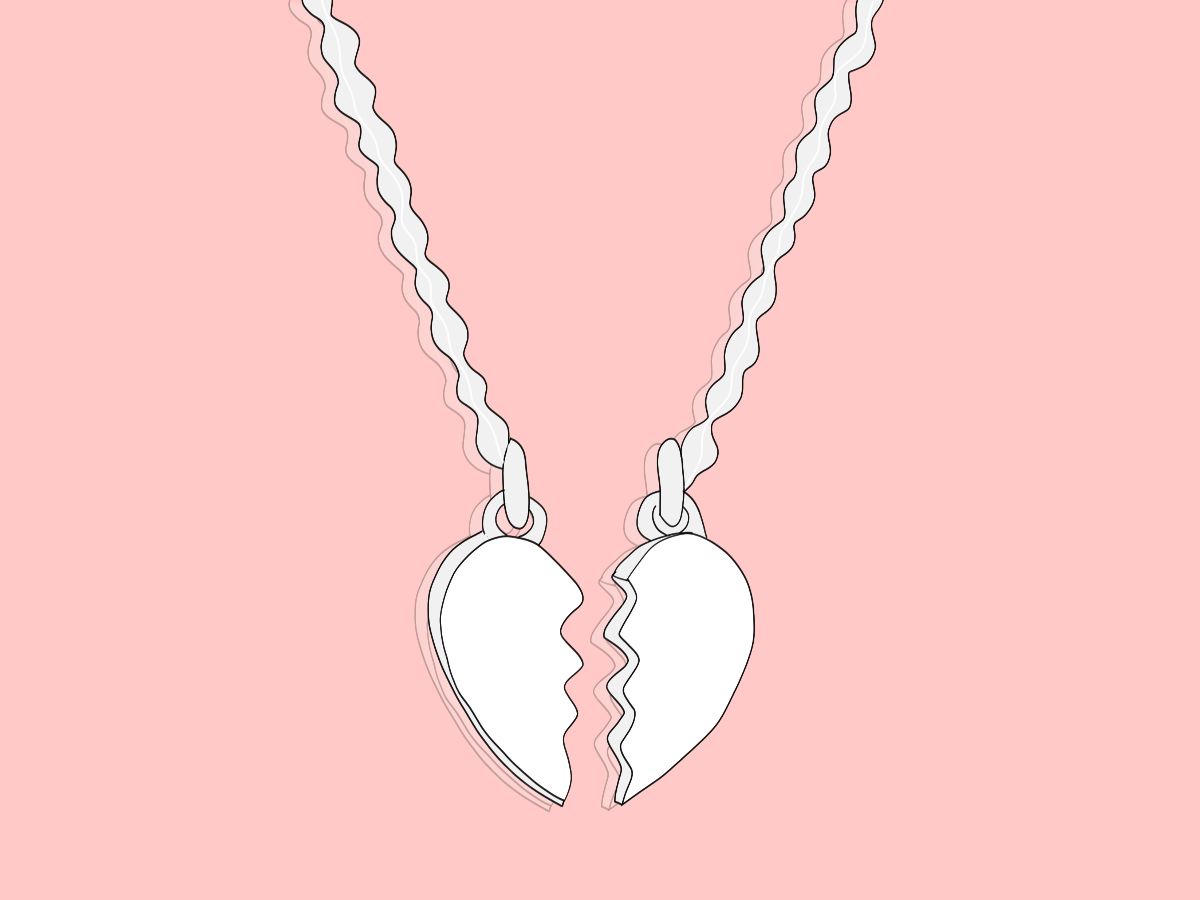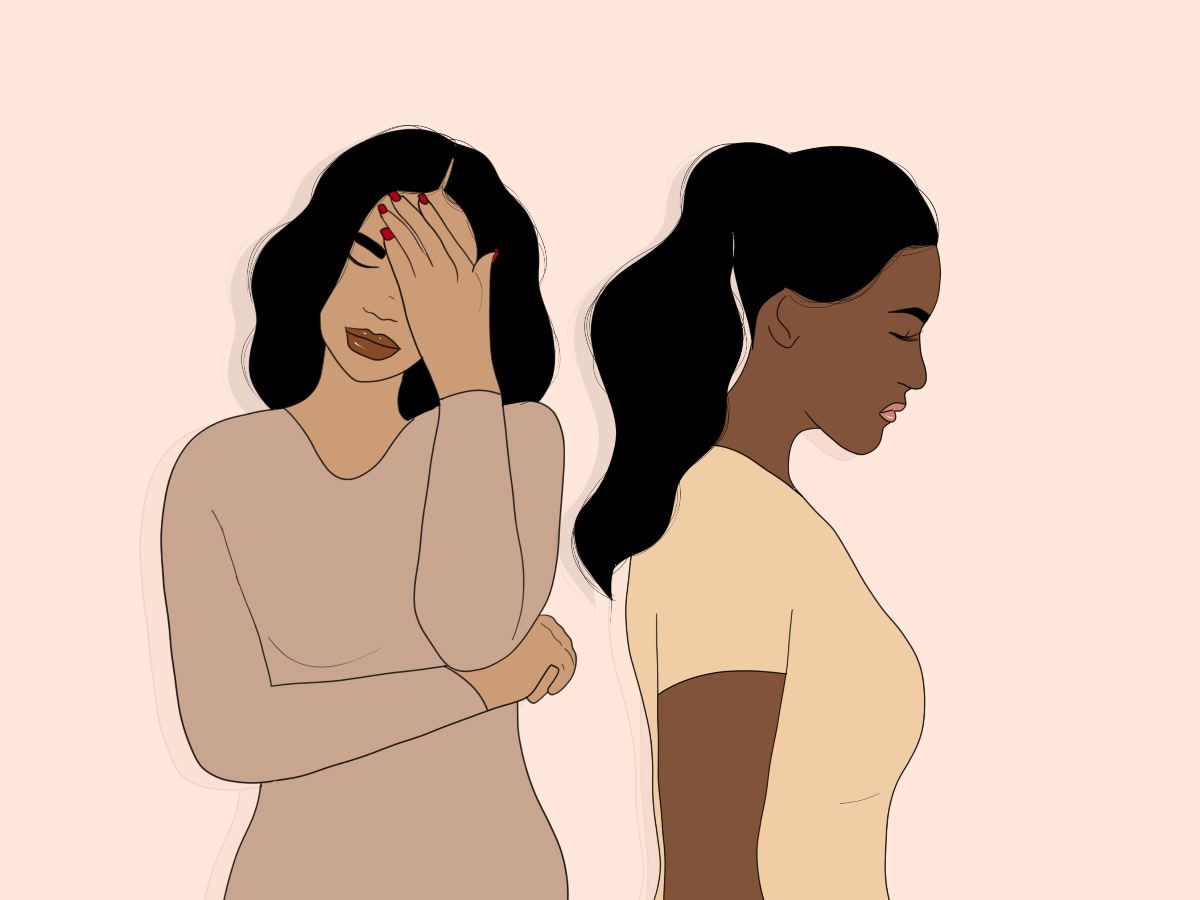Friendships are amazing but they can be confusing too. I want to talk about friendships that are deeper than a fleeting moment. Friendships that are beautiful, entertaining and a bond like no other. They can be worth fighting for, or not. When a slip up happens with a friend, it can be hard and go past the no return. I want to talk about friendship-breakups and why no-one really talks about them.
Let’s be real, friendships aren’t all glitter and gold. They need time, love and attention, just like any other relationship. And over the last few years, I’ve felt a dramatic shift in my friendships. I no longer have friends I hang with or speak to every day, week in, week out. It’s not humanly possible to speak to everybody we know everyday. Only in the last five years have I felt I’ve emotionally and mentally matured and started to understand who I am and who I want around me.
We can’t be best friends with everyone
There are different levels of friendships: acquaintance, casual friend, close friend and intimate friend. Understanding where someone sits on that list is crucial. You won’t expect more from that person depending on what they mean to you.
Our brain has a limit on how many meaningful connections we can have at any one point. Which in turn means, if someone goes up the friendship ‘snakes and ladder’, someone has to come down. But this is where things can get awkward. The friend going down the snake might not even notice. And when the dynamic in a friendship begin to shift, it can be hard to know what to do about it.
Recently, I’ve been with a couple of friends and had no idea what to say to them. This is a sign that we’re most likely growing apart. When conversations start to feel draining, words or actions may need to follow so the friendship can move forward or come to an end.
It’s not good for either party to come away with less energy. And as for me, I enjoy deep conversations and getting to know a person, to understand them for who they are. Why they react a certain way, what makes them happy, what makes them tick. There’s only so much surface-level conversation I can handle. What is a surface friendship you may ask? It’s a friendly interaction – “how are you? Is that your dog? Where did you get your shoes from?” – that doesn’t require much thinking.
Communication is key

I want to be honest. It’s OK to distance yourself from someone – we all need time and space. However, the longer you leave the gap, the harder it is to return to say how you feel. I’ve had two instances where I’ve stepped away in order for me to understand what I wanted to say. Sadly, one of them resulted in me ending a friendship – which was very awkward. How do you say to someone, “hey, I don’t want to be your friend anymore!”. It’s not a conversation we get coached on. But if speaking your truth turns out to be a weight off your shoulders, then that’s more than worth it.
You may not necessarily want to throw away a friendship but still need to get things off your chest. If the conversation is hard or uncomfortable, just focus on how your current situation with your friend is internally affecting you.
“Friends are the family we choose”
In relationships, we have the breakup chat with our partners but not our friends. Why is that?
A lot of us may have ghosted our friends and left them thinking: “What have I done?”. There’s the quote “friends are the family we choose” and I wholeheartedly believe this. As we get older, time is so precise, especially when work becomes a huge part of our lives. I truly believe that the people you pick to be in your life are worth the time, effort and respect. If you do feel like ending a friendship, which you are allowed to do, first consider the pros and cons. Write a list and weigh them out. You might even be surprised.
Here are some tips that have helped me out
- Think of each person’s situation, are they (or you) juggling more than they can handle? Take this into consideration and that may be why they (you) are feeling distant.
- What are the positives that you and your friends have together? Sometimes when we’re hurt, we forget to see the joyful side of things. What’s your favourite memory with your friend?
- Talk to your friend about how you feel. Try not to blame or point fingers. Saying “I feel” allows you to open up with your emotions and not stick the blame on someone else. Your friend may be unaware of how you feel or not know they have done anything.
- When life gets complicated and people change, it’s great to talk about what each person wants from the friendship. Compromising and understanding your friendship can bring you together and lead you to be on the same page.
- In some cases, taking steps back can help miss each other “absence makes the heart grow fonder”. Remember friends can come and go. You can simply be on different paths and then find each other again.
Find more self-improvement articles here >
Written by Patsy Goodwin
Illustrated by Francesca Mariama

